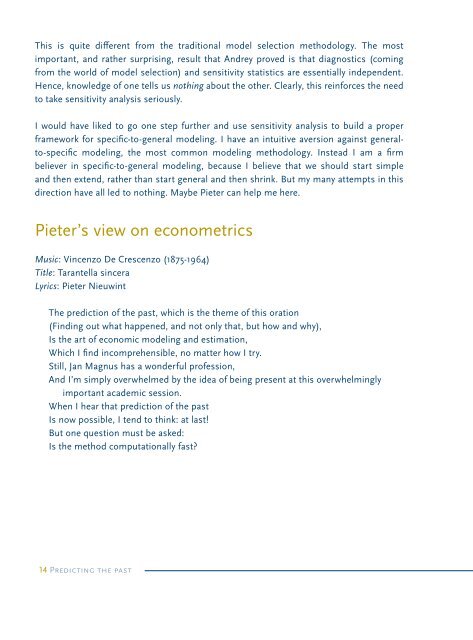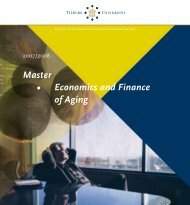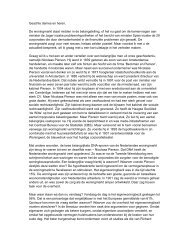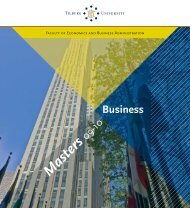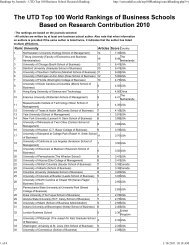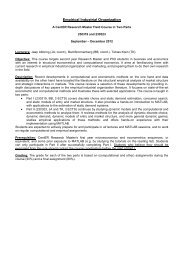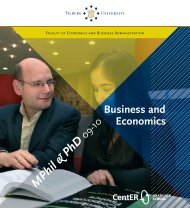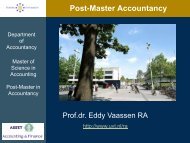Predicting the past - Tilburg University, The Netherlands
Predicting the past - Tilburg University, The Netherlands
Predicting the past - Tilburg University, The Netherlands
Create successful ePaper yourself
Turn your PDF publications into a flip-book with our unique Google optimized e-Paper software.
This is quite different from <strong>the</strong> traditional model selection methodology. <strong>The</strong> most<br />
important, and ra<strong>the</strong>r surprising, result that Andrey proved is that diagnostics (coming<br />
from <strong>the</strong> world of model selection) and sensitivity statistics are essentially independent.<br />
Hence, knowledge of one tells us nothing about <strong>the</strong> o<strong>the</strong>r. Clearly, this reinforces <strong>the</strong> need<br />
to take sensitivity analysis seriously.<br />
I would have liked to go one step fur<strong>the</strong>r and use sensitivity analysis to build a proper<br />
framework for specific-to-general modeling. I have an intuitive aversion against generalto-specific<br />
modeling, <strong>the</strong> most common modeling methodology. Instead I am a firm<br />
believer in specific-to-general modeling, because I believe that we should start simple<br />
and <strong>the</strong>n extend, ra<strong>the</strong>r than start general and <strong>the</strong>n shrink. But my many attempts in this<br />
direction have all led to nothing. Maybe Pieter can help me here.<br />
Pieter’s view on econometrics<br />
Music: Vincenzo De Crescenzo (1875-1964)<br />
Title: Tarantella sincera<br />
Lyrics: Pieter Nieuwint<br />
<strong>The</strong> prediction of <strong>the</strong> <strong>past</strong>, which is <strong>the</strong> <strong>the</strong>me of this oration<br />
(Finding out what happened, and not only that, but how and why),<br />
Is <strong>the</strong> art of economic modeling and estimation,<br />
Which I find incomprehensible, no matter how I try.<br />
Still, Jan Magnus has a wonderful profession,<br />
And I’m simply overwhelmed by <strong>the</strong> idea of being present at this overwhelmingly<br />
important academic session.<br />
When I hear that prediction of <strong>the</strong> <strong>past</strong><br />
Is now possible, I tend to think: at last!<br />
But one question must be asked:<br />
Is <strong>the</strong> method computationally fast?<br />
14 <strong>Predicting</strong> <strong>the</strong> <strong>past</strong>


